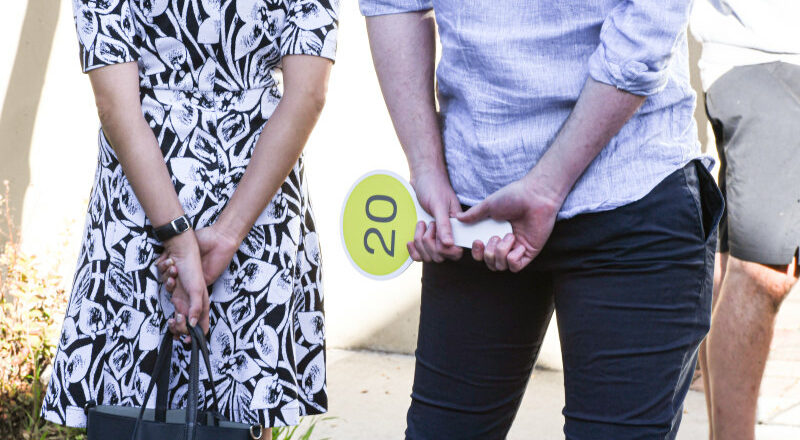New schemes helping first home buyers despite soaring prices
Save articles for later
Add articles to your saved list and come back to them any time.
For many young Australians, soaring interest rates and a white-hot housing market may have set ablaze the Australian dream of ever owning their own home. Hopes of following their parents into property ownership – other than with the help of the Bank of Mum and Dad – look daunting or even impossible.
According to Domain, the median house price in Melbourne is now $1,027,000 and in Sydney $1,530,000, following a jump of 5.3 per cent since the last quarter.
Determined home buyers can still find their way into the market with careful planning and the help of some new government schemes.Credit: Peter Rae
Reading these ballooning figures is gut-wrenching for any aspiring homeowners who are already battling with entry-level jobs, squeezed paychecks and an ever-rising cost of living. However, determined home buyers can still find their way into the market with careful planning and the help of some new government schemes.
Remote working policies introduced during the pandemic have made living further from cities a viable option for some who had previously been forced to commute, meaning attainable first homes are now found on the peripheries of towns and cities.
Cameron Thiele, 20, from the Macedon Ranges in Victoria is in the process of buying his first home. Thiele works full-time as a software engineer and has not yet moved out of home, but is hoping to use the Home Buyers Fund to find his future place.
Introduced in 2021, the fund allows Victorian buyers to get into the market with as little as a 5 per cent deposit, with the state government contributing the rest, up to 30 per cent of the property price, removing the need for Lenders Mortgage Insurance.
Thiele chose this scheme as he intends to live in his home straight away with friends. “I wouldn’t be buying for another two years without [the fund]. It would be impossible if you were renting,” he said.
While the Victorian state government offers its own 5 per cent deposit scheme, the federal government has one as well, called the First Home Guarantee.
The First Home Super Saver Scheme, another beneficial initiative, enables potential homeowners to voluntarily contribute to their superannuation, which they can later withdraw for a house deposit.
Edward Brown, principal at Belle Property in Sydney, said: “There is hope, and we’re certainly seeing young buyers who have saved to get into the property market.”
“The government schemes are great as they motivate more people into the property market. It can be difficult as there is not much supply in many key areas and cities to match the demand of young people.”
However, younger buyers can still encounter significant hurdles when applying for loans. Penny Bate, 20, from Canberra, works as a law clerk. She found that it is difficult being a student and having a HELP loan.
“Some banks are less likely to consider your application with student loans or unstable income that comes as a result of working and studying full time,” she said.
“I’ve been contemplating using the First Home Buyers Grant as I’m looking at properties under $600,000, however, the high-interest rates and mortgage rates are a challenge.”
When asked what advice he could give to young people, Brown urged prospective buyers to do research.
“Understand the area, and work with a great broker to understand numbers for how you can stretch comfortably. Look for adjacent suburbs if you get outpriced in one area.”
While affording a home might be daunting in the current real estate and economic climate, it is not impossible
The dream of homeownership could become a reality by researching the housing market, implementing a strategic savings plan, leveraging government assistance, and exploring diverse home loan options.
Hannah Farrow is a third-year student at the Australian National University. She has a keen interest in economics and is Editor-in-Chief of the ANU Observer.
- Advice given in this article is general in nature and is not intended to influence readers’ decisions about investing or financial products. They should always seek their own professional advice that takes into account their own personal circumstances before making any financial decisions.
For expert tips on how to save, invest and make the most of your money, delivered to your inbox every Sunday, sign up for our Real Money newsletter here.
Most Viewed in Money
From our partners
Source: Read Full Article


